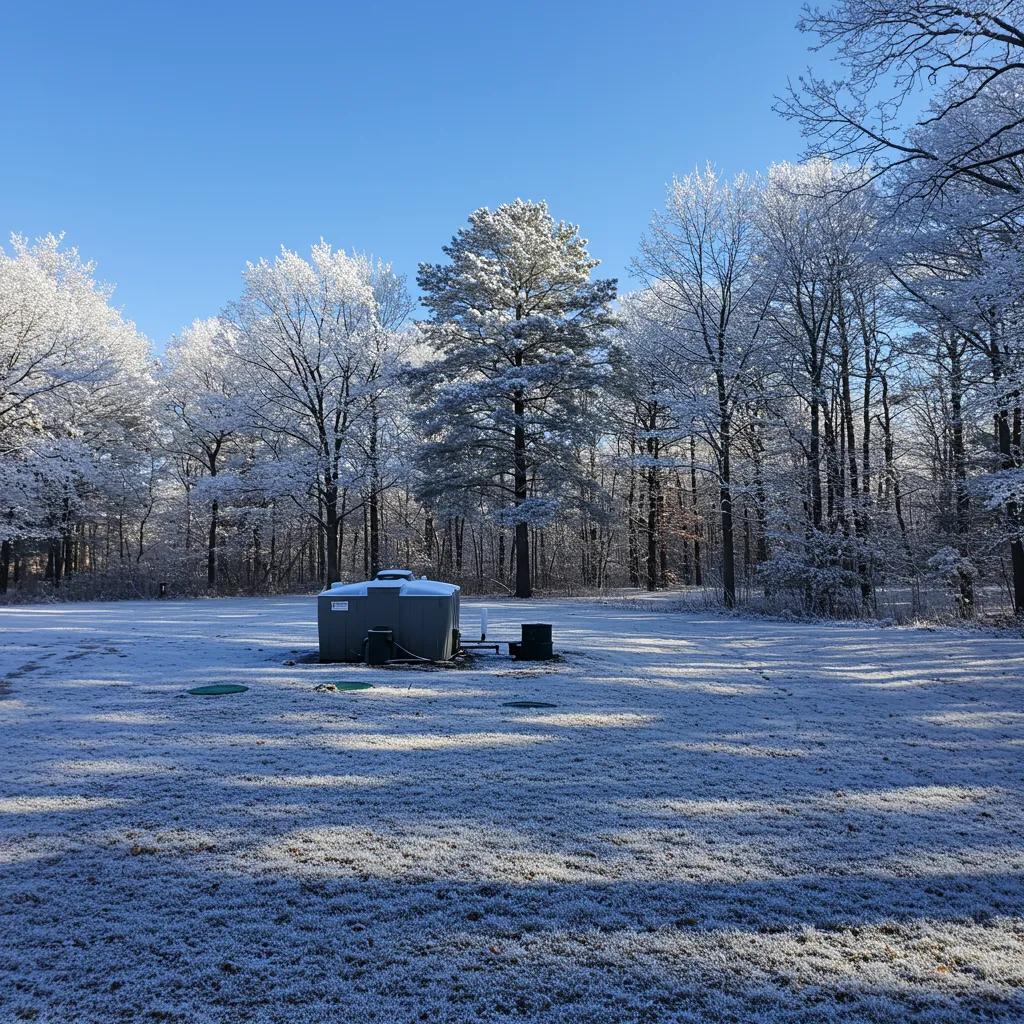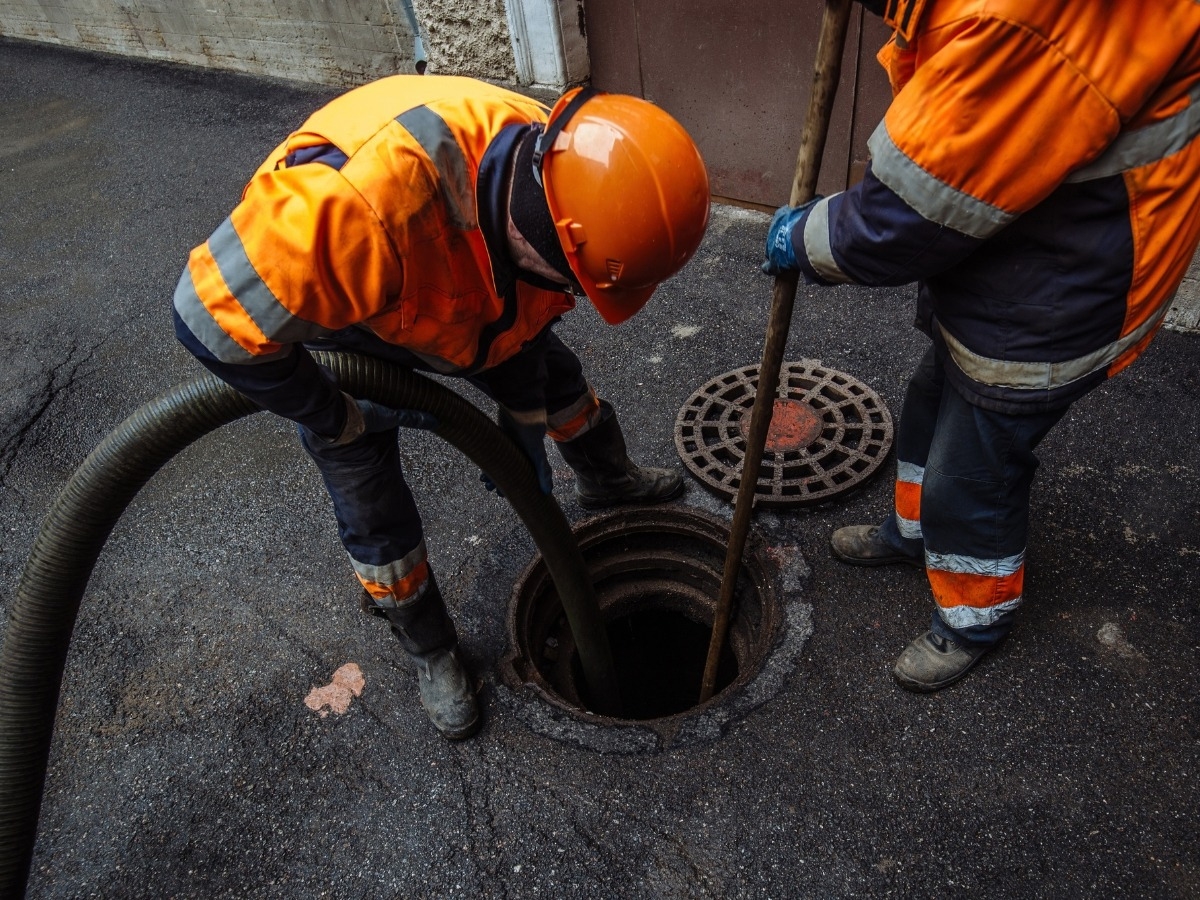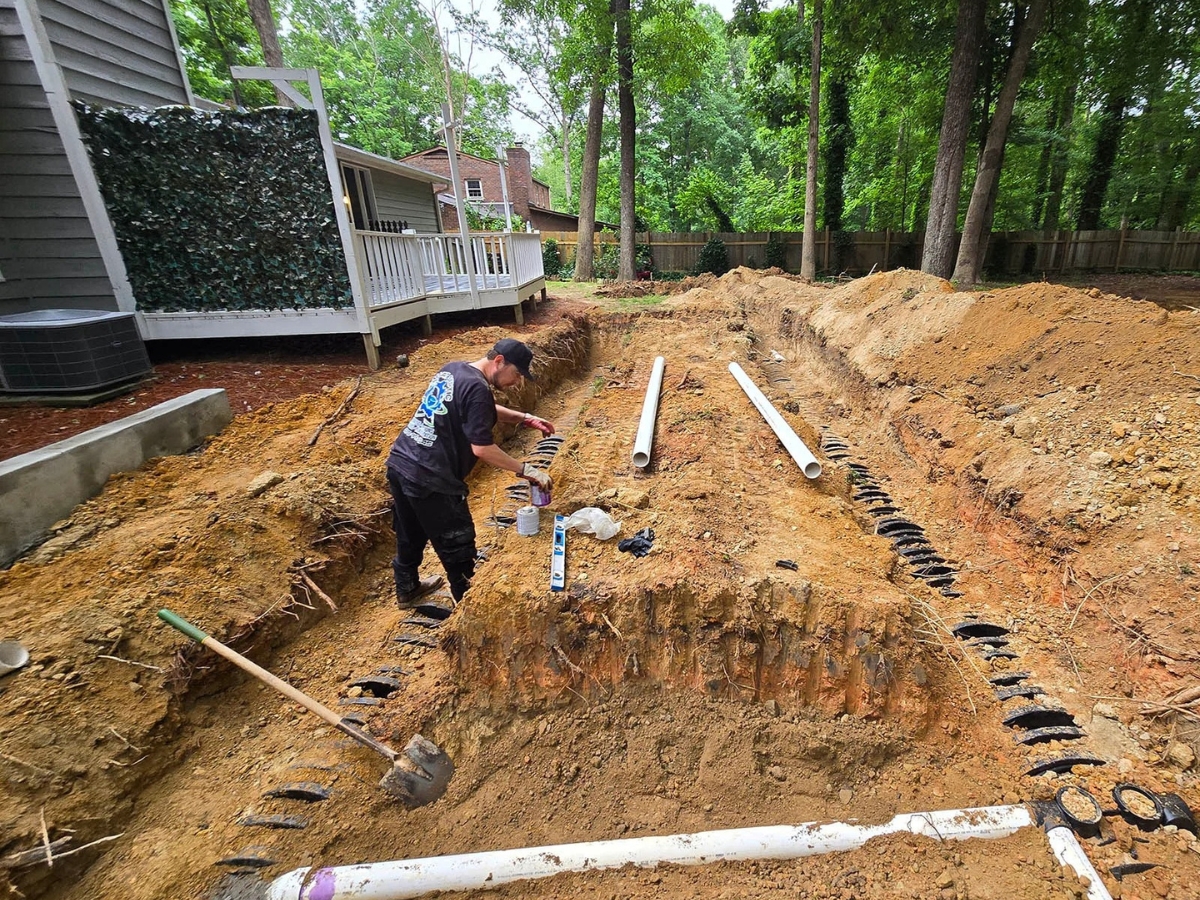As winter approaches in Kennesaw, GA, proactive septic maintenance becomes crucial to prevent freezing, backups, and costly damage during the colder months. The region’s fluctuating temperatures and occasional hard freezes can pose unique risks to your system, making seasonal preparation a key responsibility for homeowners. In this step-by-step guide, we’ll walk you through essential winter septic maintenance Kennesaw, GA homeowners should keep in mind—from insulating exposed pipes and managing household water usage to scheduling a pre-winter pumping—so you can safeguard your system’s function and avoid emergencies until spring.
Winter Septic Maintenance Kennesaw Homeowners Must Know
- How Does Winter Weather Impact Septic Systems in Kennesaw, GA?
- When and Why Should You Schedule Septic Tank Pumping Before Winter in Kennesaw?
- What Does a Comprehensive Winter Septic System Inspection Include in Kennesaw?
- How Can You Protect Your Septic Drain Field from Freezing in Kennesaw Winters?
- What Daily Habits Help Maintain Septic System Health During Kennesaw’s Cold Season?
- What Are the Signs of Winter Septic System Problems and When Should You Call for Emergency Service?
- Why Choose Smart Septic Pros for Winter Septic Maintenance in Kennesaw, GA?
- What Are the Most Frequently Asked Questions About Winter Septic Maintenance Kennesaw Homeowners Should Know?
- Conclusion
How Does Winter Weather Impact Septic Systems in Kennesaw, GA?
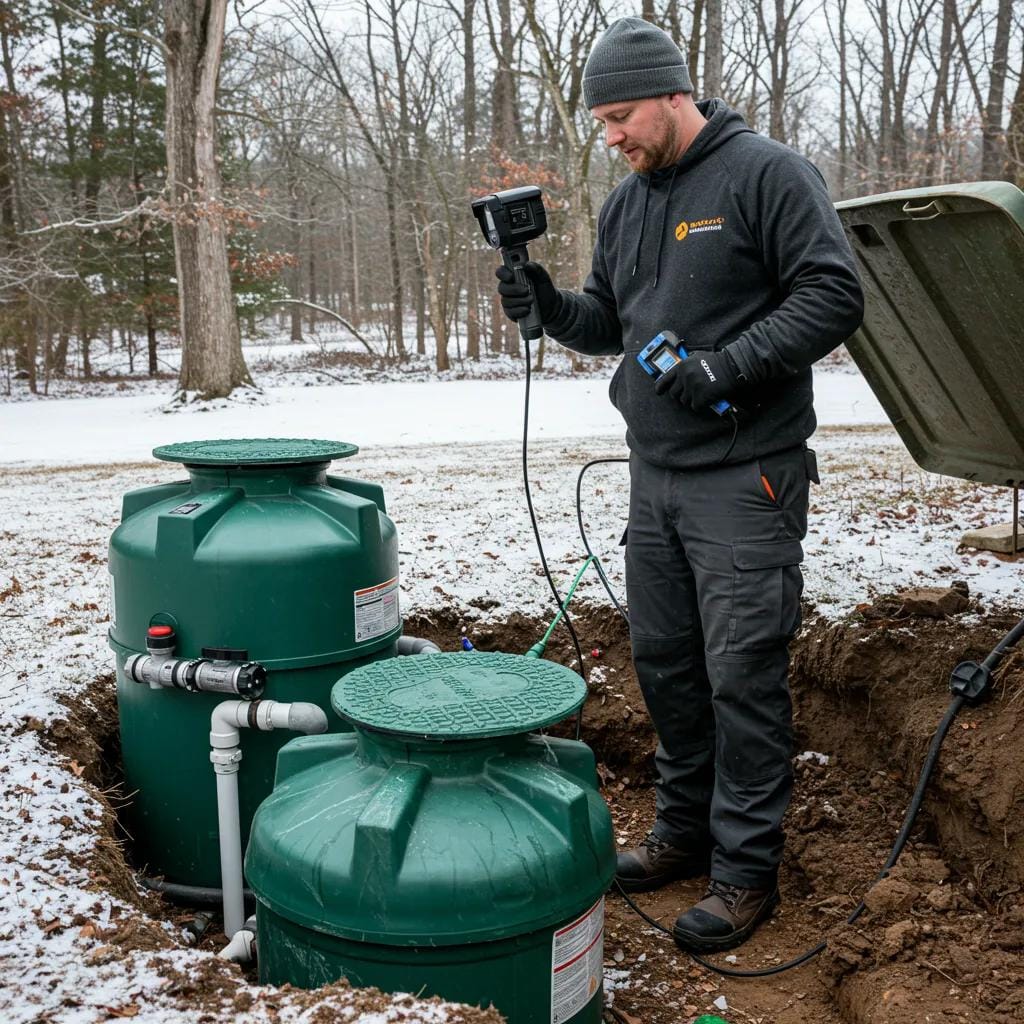
Winter weather can put significant stress on septic systems in Kennesaw. These systems rely on stable temperatures, natural bacterial activity, and proper soil drainage to function efficiently. When temperatures drop, cold air and waterlogged soil can disrupt this balance by slowing down the breakdown of waste, tightening pipe connections, and reducing the soil’s ability to absorb treated water. Recognizing how these factors interact is key to effective winter septic maintenance in Kennesaw and helps homeowners prevent costly repairs.
What Are the Common Winter Challenges for Septic Tanks and Drain Fields?
Septic systems face several unique challenges during the colder months that can affect performance and longevity. One of the most common issues is reduced bacterial activity. As temperatures fall, the natural bacteria inside the septic tank slow down, causing solids to accumulate more quickly and increasing the risk of clogs or backups. Another concern is pipe freezing. Pipes that are not properly insulated or are buried too close to the surface are vulnerable to freezing, which can block wastewater flow or even lead to cracks and leaks.
Soil conditions can also become problematic in winter. Kennesaw’s clay-rich soils hold onto moisture and expand as they freeze, compressing the tiny spaces in the drain field that allow treated water to disperse. This process, known as soil heaving, can restrict drainage and lead to system overflows. Identifying these potential issues early allows homeowners to take preventive steps before winter weather causes serious damage.
How Do Kennesaw’s Soil and Climate Conditions Affect Septic Systems?
The local soil composition and climate in Kennesaw present additional challenges for septic performance in winter. The region’s distinctive red clay and sandy loam soils retain moisture efficiently but often drain slowly. When freezing temperatures set in, clay soils swell and tighten, restricting the flow of treated effluent through the drain field. Sandy soils, meanwhile, can develop frost pockets that block absorption.
Winter precipitation compounds these issues by raising the groundwater level, which puts extra pressure on the septic system and increases the risk of failure. Homeowners who understand how these environmental factors interact with their septic systems are better equipped to implement a maintenance plan tailored to local conditions. This often includes insulating vulnerable components, diverting surface water away from the drain field, and monitoring moisture levels throughout the season.
Why Is Freezing a Major Risk for Septic Systems During Winter?
Freezing temperatures threaten the structural, biological, and functional integrity of a septic system. Ice expansion can crack tanks, pipes, or baffles, leading to leaks and costly damage. The drop in temperature also slows the beneficial bacteria that break down waste, reducing the system’s efficiency and potentially causing buildup inside the tank.
Surface frost presents another major concern, especially for shallow drain fields. When the ground freezes near the surface, treated wastewater cannot properly disperse, causing backups and overflows. The best way to minimize these risks is through careful winter preparation. Insulating exposed pipes, adding mulch over vulnerable areas, and scheduling maintenance before the first hard freeze can make a significant difference in how well a system performs during cold weather.
Final Thoughts on Winter Septic Maintenance in Kennesaw
Taking a proactive approach to winter septic maintenance in Kennesaw is essential for preventing damage and keeping your system functioning efficiently. By understanding how cold weather, local soil conditions, and freezing temperatures impact performance, homeowners can take targeted steps to protect their systems. From insulating pipes to managing soil moisture and monitoring bacterial activity, these preventative measures help ensure your septic system weathers the winter season without costly disruptions.
Boost Winter Septic Performance: Essential Pre-Winter Maintenance
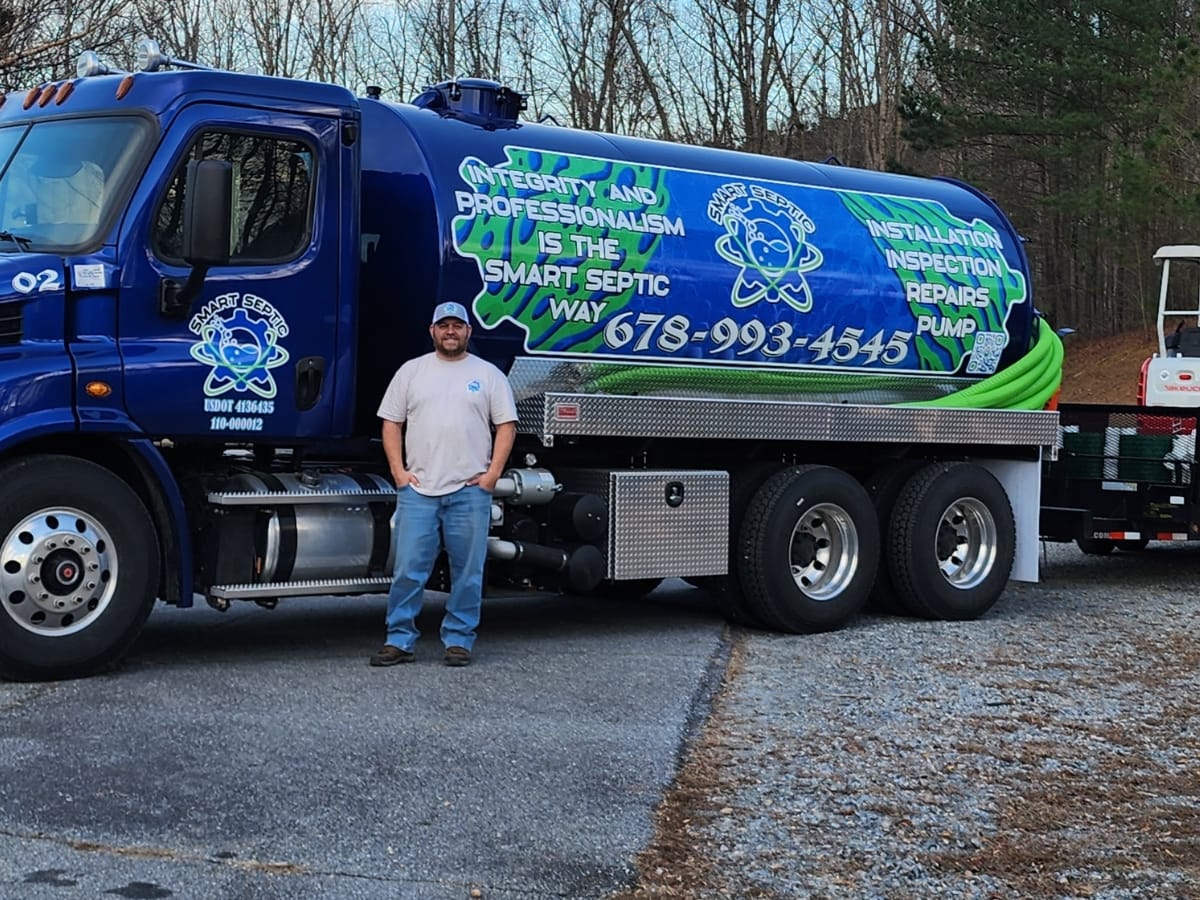
Scheduling septic tank pumping before cold weather arrives is one of the most important steps you can take for effective winter septic maintenance in Kennesaw. Over time, sludge and scum accumulate inside the tank, reducing its capacity and slowing down bacterial activity. This buildup not only limits the system’s ability to process wastewater efficiently but also increases the risk of backups, clogs, and pipe damage during freezing conditions. Pumping before winter clears out these solids and restores the tank’s optimal function, helping your system handle seasonal changes with less stress.
For most homes, the frequency of pumping depends on household size and water usage. Smaller households of one to two people typically need service every three years, while families of three to four should aim for every two years. Larger households with five or more people often benefit from annual pumping. By scheduling service in the late fall, you reduce the risk of sludge hardening, pipes freezing, or the system becoming overloaded during peak holiday use.
How Often Should Septic Tanks Be Pumped to Prevent Winter Issues?
Consistent pumping is key to preventing cold-weather problems in septic systems. As water usage often increases in late fall and winter due to gatherings and holiday guests, systems without regular maintenance are more likely to experience clogs and freeze-ups. Most septic professionals recommend pumping every one to three years, adjusted for household size and usage habits.
Regular pumping ensures the tank maintains enough treatment volume to process wastewater efficiently even when bacterial activity slows down in cold weather. Without this maintenance, excess solids can block the inlet and outlet pipes, creating conditions that lead to frozen sections of the system. Taking care of this step before temperatures drop allows your septic system to run smoothly all winter long.
What Are the Benefits of Professional Winter Septic Tank Pumping?
Professional pumping goes beyond simply removing waste; it plays a critical role in maintaining the overall health and performance of your septic system. Complete removal of sludge from the bottom of the tank helps restore capacity, while clearing the scum layer from the surface improves the flow of effluent. Many professionals will also clean the effluent filter, which helps prevent blockages in the drain field that could otherwise lead to overflows or freeze-related failures.
A thorough pumping service reduces the likelihood of solids lingering inside the tank, where they could freeze and cause damage. It also allows technicians to inspect your system for early signs of wear, leaks, or other issues that are best addressed before winter sets in.
How Does Pumping Protect Your Septic System From Freezing?
One of the primary benefits of septic tank pumping before winter is that it clears the tank of materials that could contribute to freezing. As sludge accumulates, it limits the contact between wastewater and the bacteria that break it down. This reduced activity can slow the system’s processing speed, leading to standing water and solids that freeze more easily in pipes and fittings.
By vacuuming out settled solids and floating scum, pumping restores the tank’s intended capacity and ensures wastewater moves through the system efficiently. A well-maintained system is better equipped to resist temperature-related slowdowns, and the reduced buildup means fewer chances of frozen blockages in the inlet or outlet pipes.
What Does a Comprehensive Winter Septic System Inspection Include in Kennesaw?
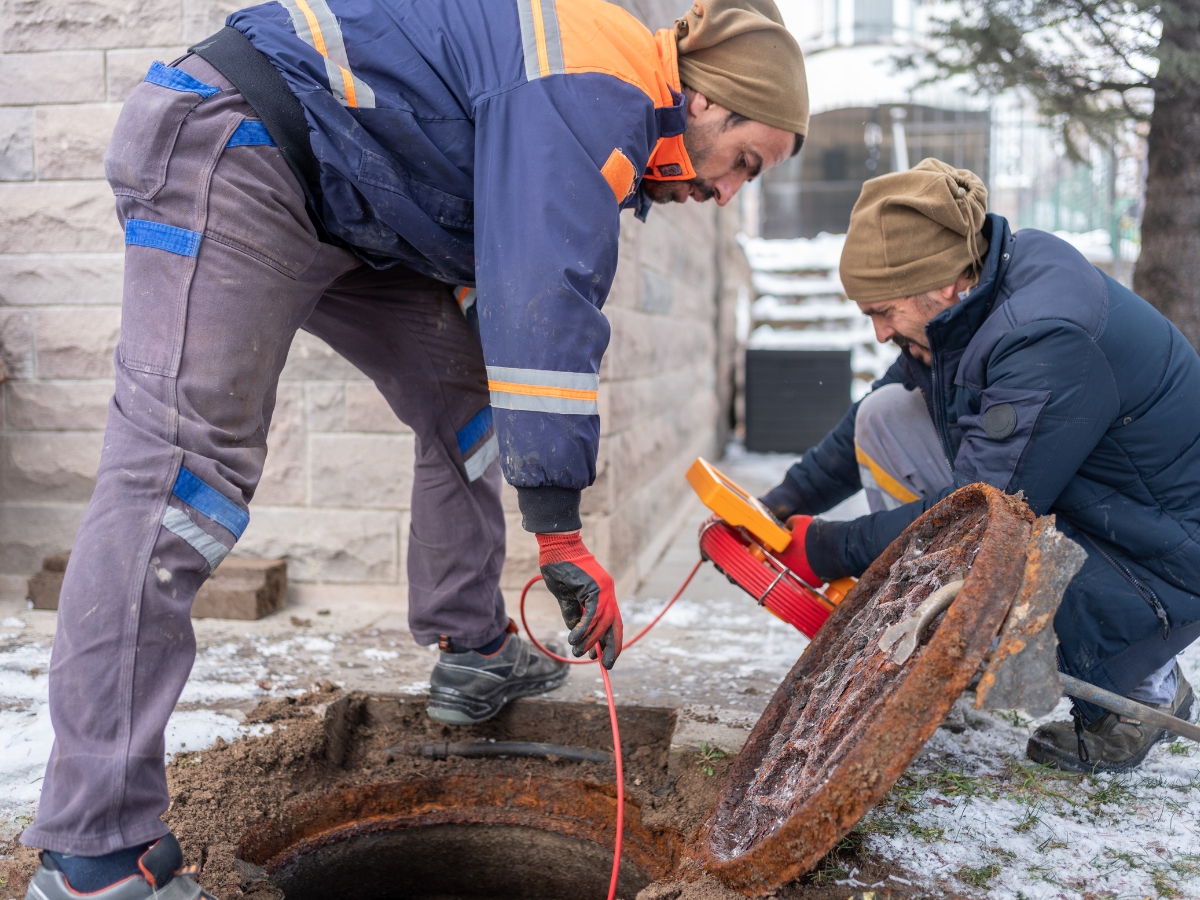
A detailed inspection is one of the most important steps in effective winter septic maintenance in Kennesaw. Cold weather can reveal hidden vulnerabilities in your system, from frost-related damage to drainage issues. A thorough inspection before temperatures drop ensures every component is functioning properly and reduces the risk of costly repairs during the colder months.
Which Septic System Components Are Checked During a Winter Inspection?
A complete inspection covers every part of your septic system that could be affected by winter weather. Baffles and effluent filters are examined to make sure they are free of clogs or damage that could disrupt the flow of wastewater. Inspection ports and lids are checked for proper sealing and insulation, which helps keep cold air from entering the tank and affecting bacterial activity. Inlet and outlet pipes are carefully reviewed for signs of frost damage, shifting, or cracks that could lead to leaks. Finally, drain-field trenches are assessed for early signs of ponding or ice formation, both of which can indicate drainage issues that need attention before they worsen.
Each of these components plays a crucial role in keeping your septic system operating efficiently. Ensuring they are all in good condition before winter hits helps protect the system from weather-related stress and reduces the likelihood of mid-season breakdowns.
How Can Inspections Identify Freezing Risks and Structural Problems?
Comprehensive inspections use advanced diagnostic tools like camera scopes and thermal probes to detect issues that are not visible from the surface. These technologies can reveal thinning pipes or small cracks that might lead to leaks or freezing once temperatures drop. They also help identify areas where insulation is lacking, such as inadequate soil cover depth over pipes, which increases the risk of frost infiltration.
Inspectors also check for biomat buildup near the soil surface, which can restrict wastewater absorption and cause water to pool or freeze in the drain field. Detecting these problems early allows for targeted maintenance and repairs, strengthening your system’s resilience before cold weather sets in. This proactive approach helps homeowners avoid disruptions and costly emergency repairs during the winter months.
When Is the Best Time to Schedule a Winter Septic Inspection in Kennesaw?
Timing is critical when it comes to septic inspections. The ideal window for winter maintenance in Kennesaw is October through early November, before freezing temperatures and increased holiday water use put extra strain on your system. Scheduling your inspection during this period allows any necessary repairs or adjustments to be completed before cold weather creates additional challenges.
A well-timed inspection not only identifies potential problems but also gives you the opportunity to address them while conditions are still favorable. By ensuring every part of your septic system is prepared for the colder months, you reduce the chances of backups, freezing, and other winter-related failures.
How Can You Protect Your Septic Drain Field from Freezing in Kennesaw Winters?
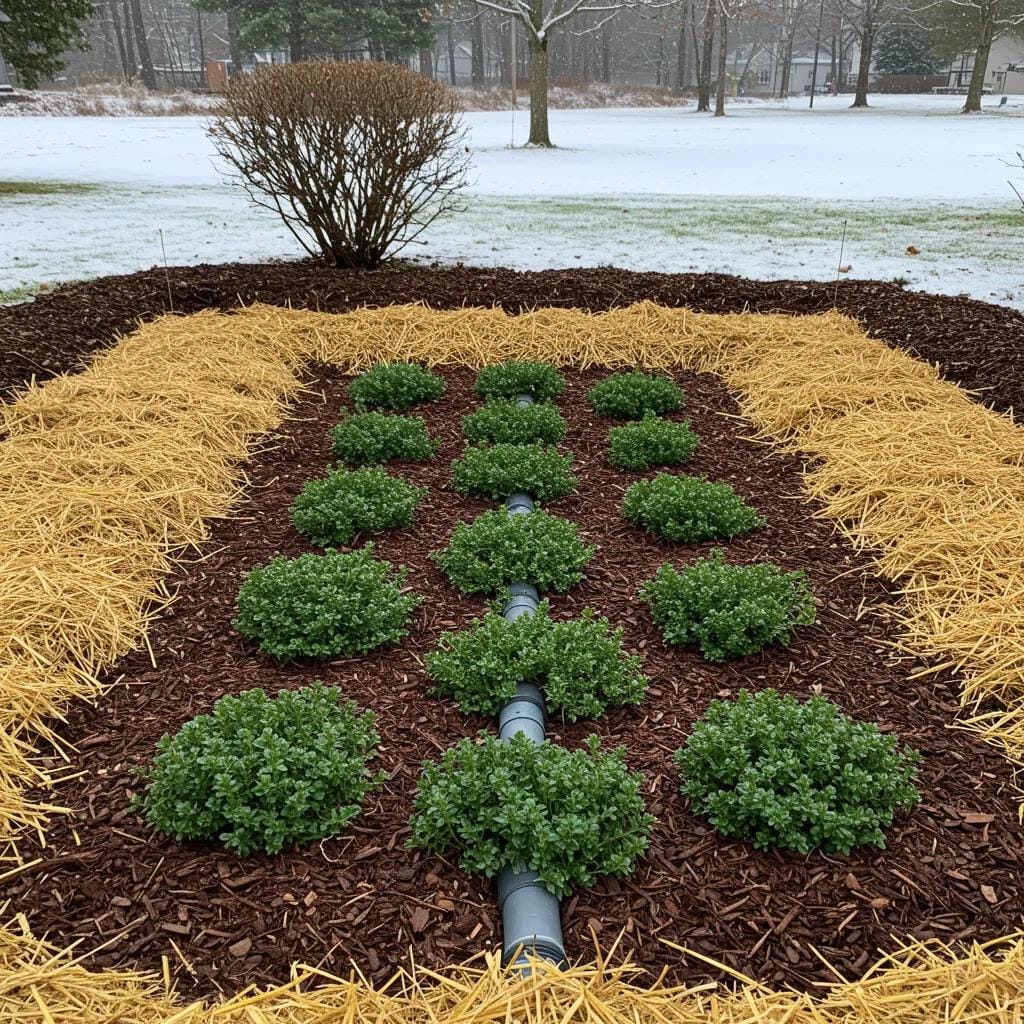
Proper drain field protection is a critical part of winter septic maintenance in Kennesaw. Cold temperatures can cause water in the soil and pipes to freeze, disrupting wastewater treatment and leading to backups or costly damage. By preparing your drain field before winter sets in, you can safeguard its functionality and ensure your septic system continues to operate smoothly throughout the colder months.
What Are Effective Drain Field Insulation and Landscaping Tips?
Insulating the drain field is one of the most effective ways to prevent freezing. Applying a layer of 4 to 6 inches of mulch, straw, or shredded leaves over the drain field helps trap ground heat and insulate the soil, reducing the likelihood of frost penetrating deeply enough to freeze pipes. Planting shallow-rooted groundcover plants can also help regulate soil temperature and provide an added layer of insulation.
It is important to avoid aggressive snow removal directly over the drain field. While it may seem helpful to clear snow, removing too much can actually make the soil more vulnerable to deep freezes. Snow acts as a natural insulator, so leaving a light layer in place offers additional protection. For any exposed distribution boxes, installing insulating boards around them can help shield critical components from extreme cold.
How Do Soil Type and Vegetation Affect Drain Field Freezing Risks?
The type of soil in your yard plays a significant role in how vulnerable your drain field is to freezing. Clay soils, which are common in Kennesaw, retain water easily. This retained moisture can freeze solid in cold weather, restricting effluent movement and increasing the risk of blockages. Sandy soils, on the other hand, drain quickly but may freeze deeper due to lower water content. While they often thaw faster in spring, they still need insulation to reduce the depth of frost penetration.
Vegetation choices also influence how well your drain field withstands winter conditions. Plants with high transpiration rates help draw moisture from the soil, reducing the amount of water that could freeze. Native grasses and low-maintenance groundcovers suited to Kennesaw’s climate are ideal choices. They not only help stabilize soil temperatures but also support healthy soil structure, which improves drainage and minimizes freeze-related stress on your system.
When Is Professional Drain Field Repair Necessary After Winter Damage?
Even with careful preparation, winter conditions can sometimes cause damage that needs professional attention. If you notice persistent wet spots, soggy ground, or pooling water over your drain field once temperatures rise, these could be signs that the system has been compromised. A significant slowdown in wastewater absorption is another red flag that the drain field may have sustained frost damage or blockages.
Prompt repairs are essential to prevent minor issues from escalating into major system failures. Early intervention can restore proper drainage and prevent the need for a full drain field replacement, which is far more costly and disruptive.
What Daily Habits Help Maintain Septic System Health During Kennesaw’s Cold Season?
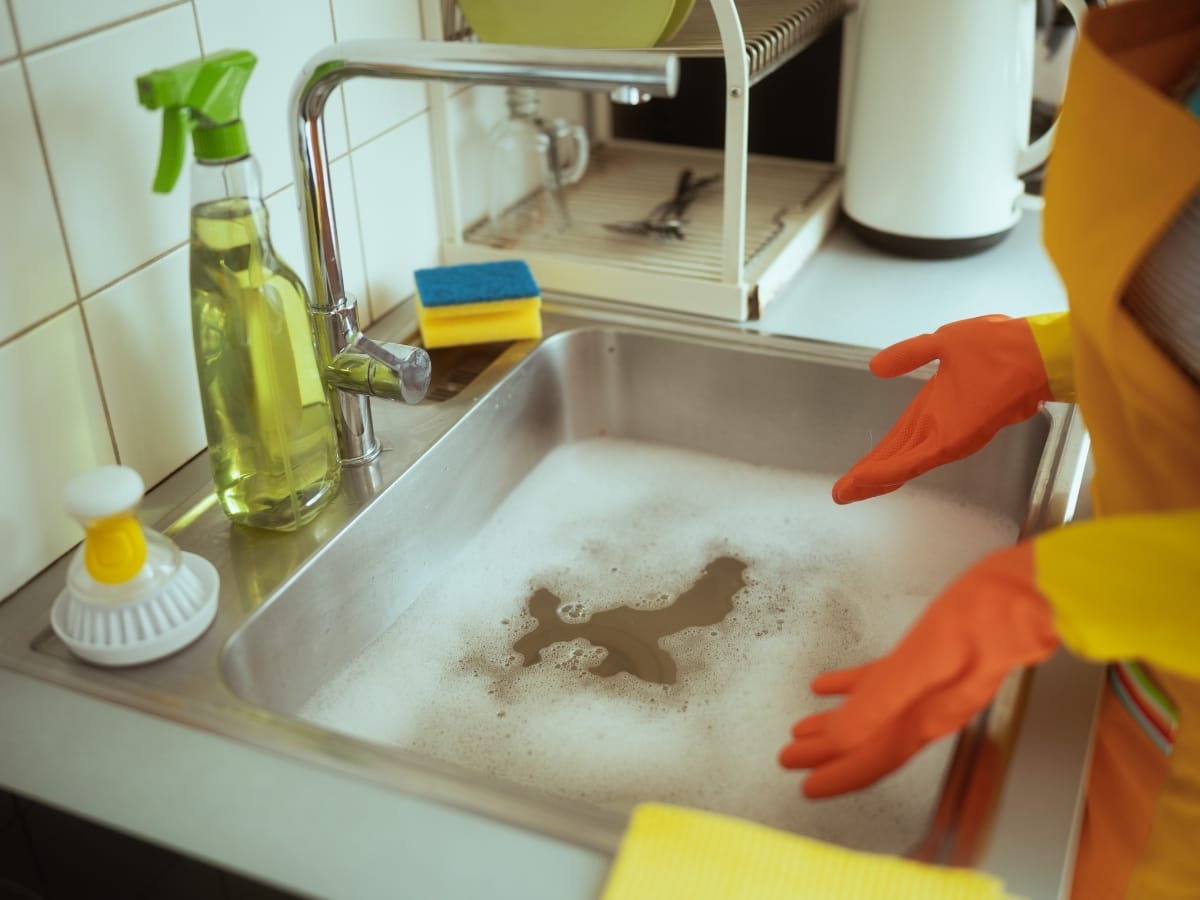
Maintaining your septic system through the colder months requires more than just a pre-winter inspection. Consistent daily habits play a significant role in preventing freeze-related damage, avoiding costly repairs, and keeping your system running efficiently. During winter, when decomposition slows and pipes are more vulnerable, small changes in water usage, waste disposal, and household routines can make a big difference.
How Does Water Conservation Prevent Overloading Your Septic System in Winter?
Water usage tends to increase during colder months, especially around the holidays, but overloading your system can stress its components and increase the risk of freezing. Conserving water helps maintain the balance between inflow and treatment, giving your septic system time to process wastewater effectively.
A simple yet effective habit is to spread laundry loads throughout the week instead of doing multiple loads on the same day. This reduces the volume of water entering the tank at once, preventing the system from becoming overwhelmed. Installing low-flow fixtures, such as toilets and showerheads, also helps reduce the daily water load without sacrificing performance. Another key step is managing runoff from your property. Ensure that roof gutters and downspouts are directed away from the drain field, as excess water in this area can saturate the soil, limit its ability to absorb effluent, and increase the risk of freezing.
What Should You Avoid Flushing or Pouring into Your Septic System in Winter?
What goes down your drains can significantly affect septic performance, particularly when colder temperatures already slow bacterial activity. Certain substances can clog pipes, kill essential bacteria, or damage components, making your system more vulnerable in winter.
Avoid flushing items like grease, coffee grounds, or sanitary products. These materials do not break down easily and can accumulate in your tank, leading to blockages and reduced capacity. Harsh chemical cleaners, bleach, and disinfectants should also be used sparingly. These substances can disrupt the bacterial ecosystem inside the tank, slowing down the breakdown of solids and increasing the risk of backups. Never pour automotive fluids like antifreeze into sinks or toilets, as they are toxic to bacteria and can damage the internal structure of your system.
How Does Maintaining Bacteria Activity Support Winter Septic Function?
Beneficial bacteria are the driving force behind a healthy septic system. They produce enzymes that break down organic matter, allowing solids to settle and effluent to disperse properly into the drain field. Cold weather naturally slows down bacterial activity, so supporting it is especially important during the winter months.
You can help sustain this microbial balance by choosing biodegradable cleaning products and septic-safe detergents. These products are less likely to disrupt the natural bacteria inside the tank. Consistent, moderate water usage also helps maintain an environment where bacteria can thrive. If too much cold water enters the system too quickly, it can lower the tank’s internal temperature and slow decomposition even further.
What Are the Signs of Winter Septic System Problems and When Should You Call for Emergency Service?
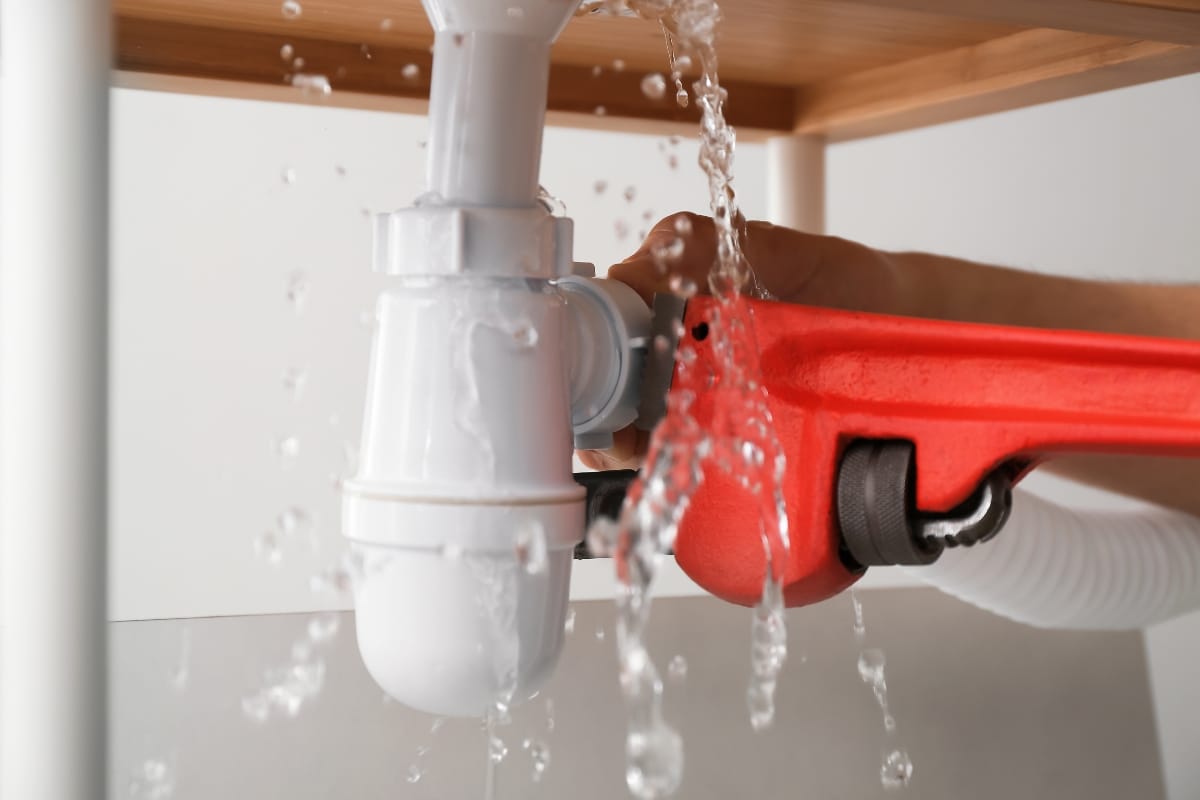
Cold weather can be tough on septic systems, and knowing the early warning signs of trouble is essential to preventing expensive damage. Winter septic maintenance Kennesaw requires paying attention to how your system behaves as temperatures drop. If issues are caught early, many problems can be fixed before they lead to backups or costly repairs.
How to Recognize Symptoms of a Frozen or Failing Septic System
A properly functioning septic system should operate quietly and efficiently, even in colder months. When something goes wrong, there are usually noticeable changes in how your plumbing and drain field behave. Slow drains or gurgling sounds from sinks, showers, or toilets often mean wastewater is struggling to flow through the system, which can happen when pipes begin to freeze or blockages form.
Sewage odors, either inside your home or around the drain field, are another red flag. These smells usually mean gases are escaping because wastewater is not moving through the system as it should. Wet or icy patches over your drain field, even during extended freezes, may indicate that effluent is not dispersing properly and is instead pooling near the surface. Overflow at inspection ports or cleanouts is one of the most serious signs, as it usually points to a backup already in progress.
These symptoms should never be ignored. Acting quickly can prevent further complications like cracked pipes, frozen drain lines, or even a complete system failure.
What Immediate Actions Can Prevent Further Damage
If you suspect your septic system is struggling in winter, there are a few steps you can take right away to limit damage while you wait for professional help. Reducing your household’s water usage is the first and most important action. Limit laundry, dishwashing, and long showers to ease the pressure on the system and prevent additional wastewater from backing up.
Adding extra insulation to exposed tanks or pipes can also help retain heat and slow the freezing process. Straw, mulch, or specialized insulation blankets are often effective, but avoid piling heavy materials that might compact the soil over the drain field. It’s important to resist the temptation to thaw frozen pipes yourself, especially with open flames or heat sources. These methods can damage plastic components or create dangerous conditions.
Prompt professional attention is key to resolving septic problems before they escalate. Technicians can locate frozen sections, safely thaw pipes, and repair any damage before it leads to more costly repairs.
Why Rapid Response Is Essential During Winter Septic Emergencies
Time is critical when septic issues occur in freezing weather. A delay of even a few days can allow ice blockages to worsen, leading to burst pipes or structural damage within the tank. In some cases, backups can push wastewater into your home, creating serious health hazards and requiring expensive cleanup.
Effective winter septic maintenance in Kennesaw includes knowing the signs of trouble and responding quickly when they appear. By watching for slow drains, unusual odors, wet ground over your drain field, or visible overflow, you can act before small issues turn into major emergencies. Prompt action, reduced water use, and proper insulation can make a big difference in protecting your system and keeping it functional all winter long.ponse capabilities on our septic repair services page.
Why Choose Smart Septic Pros for Winter Septic Maintenance in Kennesaw, GA?
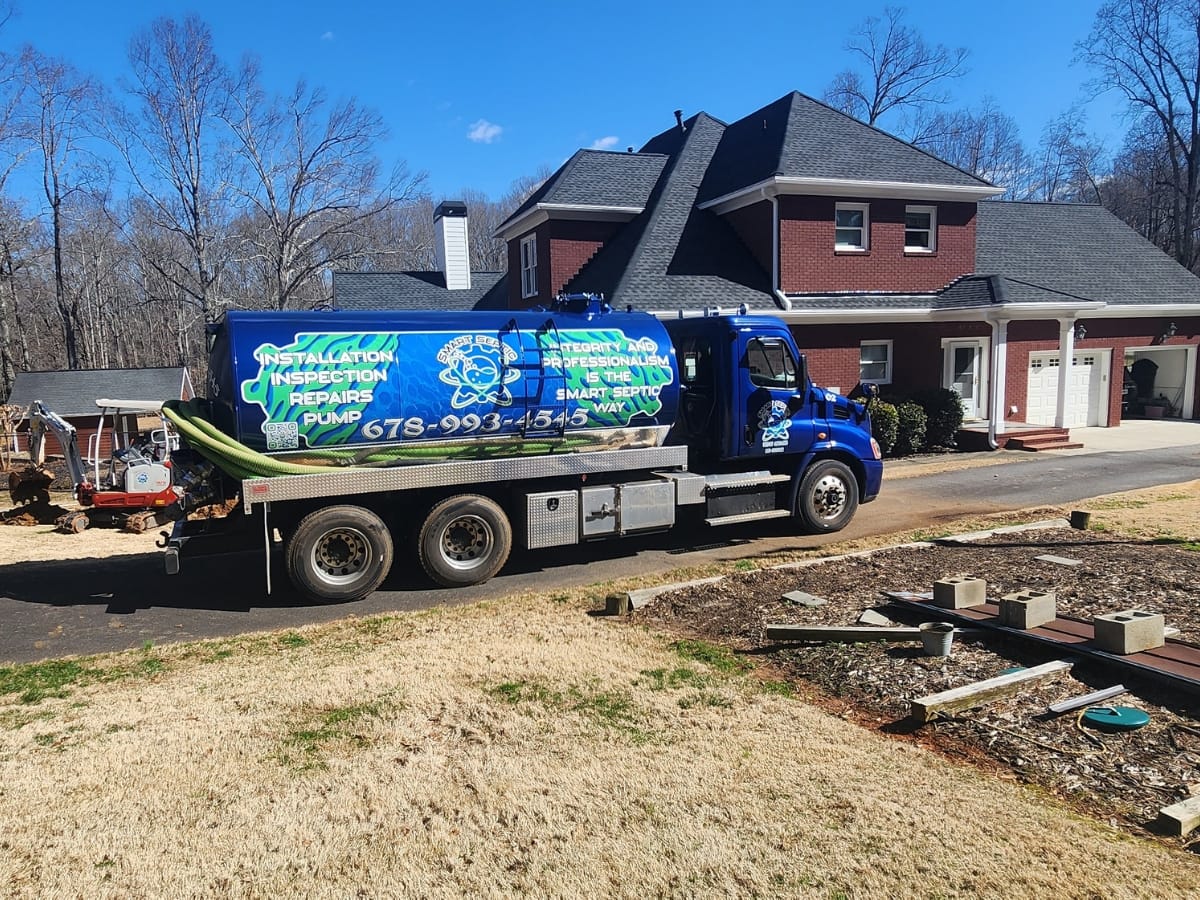
When winter hits, septic systems in Kennesaw face unique challenges that require more than just routine care. Choosing a trusted, experienced team can make the difference between a system that operates smoothly through the cold months and one that suffers costly breakdowns. Smart Septic Pros stands out by combining technical expertise, reliable service, and tailored solutions that address the specific needs of local soil and climate conditions.
What Makes Smart Septic Pros a Trusted Choice for Winter Septic Care?
Effective winter septic maintenance Kennesaw demands more than general plumbing knowledge. It requires an understanding of how cold temperatures affect bacterial activity, how clay-heavy Georgia soils behave when frozen, and how to prevent frost-related pipe issues before they happen. The team at Smart Septic Pros is trained specifically for these regional challenges. Each technician is certified and equipped with the latest diagnostic tools to detect early signs of trouble before they escalate into expensive repairs.
Rapid response times are another crucial part of their service. Winter septic issues can escalate quickly, so having a team that can inspect, diagnose, and resolve problems before they become emergencies is essential. Whether it’s clearing blockages, insulating vulnerable components, or performing seasonal pumping, Smart Septic Pros tailors its approach to your system’s size, age, and usage patterns. This customized care ensures your septic system continues to function efficiently throughout the cold season.
How Do Transparent Pricing and Personalized Solutions Benefit Homeowners?
Homeowners often worry about hidden costs or unexpected charges when scheduling septic maintenance, especially when emergencies arise. Smart Septic Pros prioritizes clear communication from the start. Their pricing structure is straightforward, with detailed service breakdowns provided before any work begins. This transparency helps property owners plan ahead and avoid financial surprises.
In addition, personalized maintenance plans are designed to match each system’s specific needs and household usage patterns. For example, larger households or older systems may require more frequent pumping and inspections, while newer systems may only need targeted preventative care. Tailoring service in this way not only improves performance but also extends the lifespan of the entire system, saving homeowners money in the long run.
Why Expert Winter Septic Maintenance Matters in Kennesaw
Winter septic maintenance Kennesaw is not just about avoiding short-term problems like frozen pipes or slow drainage. It’s about protecting the long-term health of your system. Cold weather slows down the bacterial processes inside the tank, reduces soil absorption rates, and increases the risk of ice-related damage to pipes and baffles. Without proactive maintenance, these issues can lead to backups, expensive repairs, or even full system failure.
A reliable maintenance provider helps homeowners stay ahead of these risks with seasonal inspections, pre-winter pumping, insulation recommendations, and expert advice tailored to local conditions. This proactive approach ensures that your septic system runs smoothly through the coldest months and is ready to handle increased water usage during the holidays and beyond.
Choosing an experienced team for winter septic maintenance in Kennesaw gives you peace of mind and helps safeguard your property from seasonal challenges. With certified technicians, clear pricing, and solutions built for Georgia’s unique climate and soil conditions, you can trust that your septic system will remain reliable, efficient, and ready for whatever winter brings.
What Are the Most Frequently Asked Questions About Winter Septic Maintenance Kennesaw Homeowners Should Know?
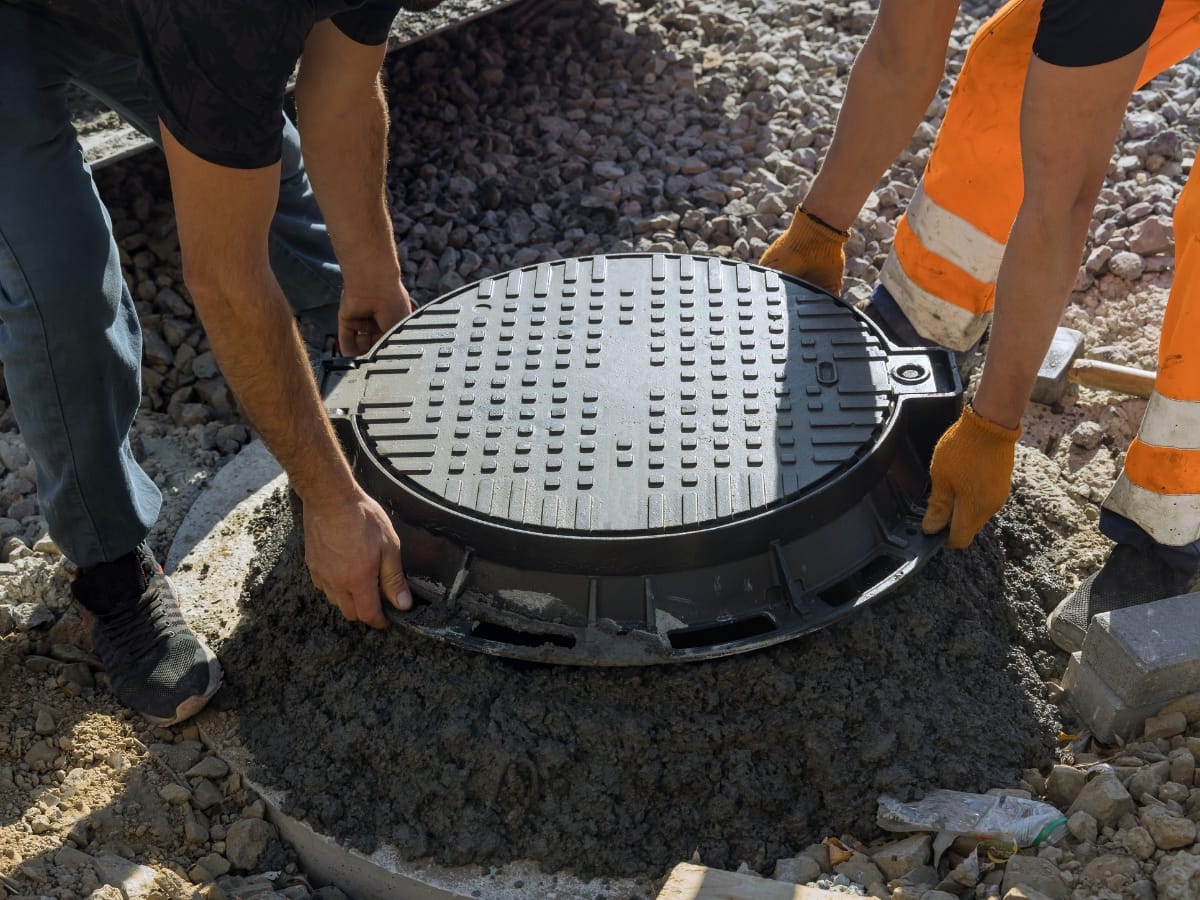
Preparing your septic system for the colder months is one of the most effective ways to prevent costly repairs and keep everything functioning properly through the winter. Homeowners in Kennesaw often have similar questions about how to protect their systems from freezing temperatures, heavy rainfall, and reduced bacterial activity. Addressing these common concerns can help you stay ahead of potential problems and ensure your septic system runs efficiently all season long.
How Do I Prepare My Septic Tank for Winter in Kennesaw, GA?
Getting your septic system winter-ready involves a few key steps. Start by scheduling a pumping service in late fall to remove accumulated sludge and scum, which helps prevent blockages and freezing within the tank. Inspect all tank lids and risers to make sure they are tightly sealed, as this keeps cold air out and maintains a stable internal temperature. Any exposed pipes should be insulated to protect them from frost, and adding a few inches of mulch or straw over the drain field helps regulate soil temperature and reduce the risk of frozen lines.
How Often Should I Pump My Septic Tank to Avoid Winter Problems?
Regular pumping is crucial for keeping your system in top condition, especially before winter weather sets in. Most households benefit from having their septic tanks pumped every 1 to 3 years, but larger families or homes with heavy water usage may need annual pumping to keep the system functioning smoothly. Removing excess solids before cold weather arrives helps maintain adequate capacity inside the tank and reduces the risk of clogs or backups caused by slower bacterial activity during the winter.
What Are the Best Ways to Prevent Septic System Freezing?
Freezing is one of the most common winter septic issues, but it’s also one of the most preventable. A layer of mulch or straw over the drain field can help insulate the soil and keep pipes from freezing. Maintaining healthy bacterial levels inside the tank by using biodegradable cleaners instead of harsh chemicals ensures that the system continues breaking down waste efficiently even in cold temperatures. Conserving water by spacing out laundry loads and fixing leaks also reduces the strain on the system, lowering the chance of water freezing in pipes. Finally, scheduling a professional inspection before temperatures drop can identify vulnerabilities like shallow pipes or missing insulation before they become major problems.
What Costs Are Associated with Winter Septic Services in Kennesaw?
The cost of winter septic maintenance in Kennesaw depends on factors like the size of your tank, the condition of your system, and the services needed. On average, homeowners can expect to pay between $200 and $400 for winter maintenance tasks such as pumping, inspections, and drain field protection. While these services involve an upfront cost, they can save thousands of dollars in potential repairs caused by freezing, backups, or system failure.
Winter septic maintenance in Kennesaw is all about prevention and preparation. By pumping your system on schedule, insulating vulnerable components, protecting the drain field, and maintaining bacterial balance, you can help your septic system function efficiently throughout the cold months. Staying proactive not only protects your property from winter-related damage but also extends the lifespan of your system and keeps it performing at its best year-round.
Conclusion
Proper winter maintenance is essential to protect your Kennesaw septic system from freezing temperatures and potential damage during the colder months. At Smart Septic Pros, we provide expert septic services to help you prepare for the winter—including inspections, tank pumping, and insulation—to keep your system functioning smoothly all season long. Don’t wait for the first freeze to take action: Call 678-993-4545or fill out our contact form today to schedule your winter maintenance and safeguard your septic system against costly cold-weather repairs.
